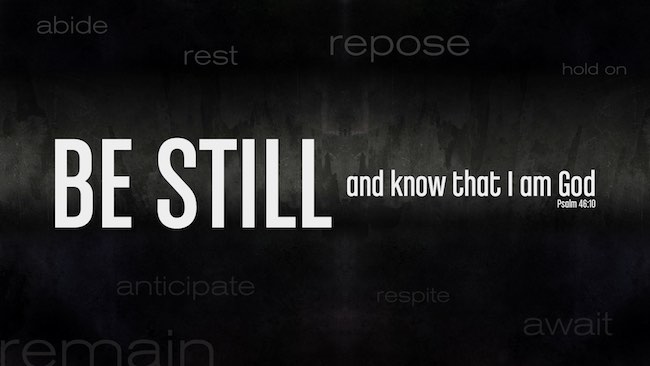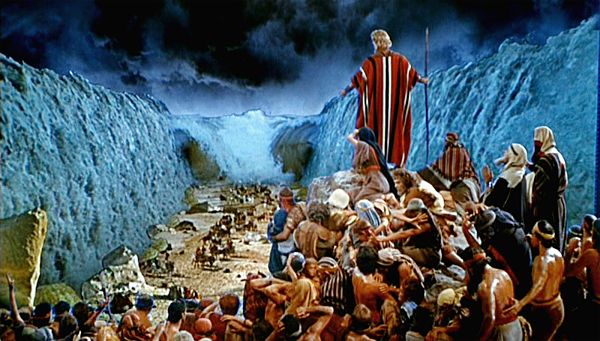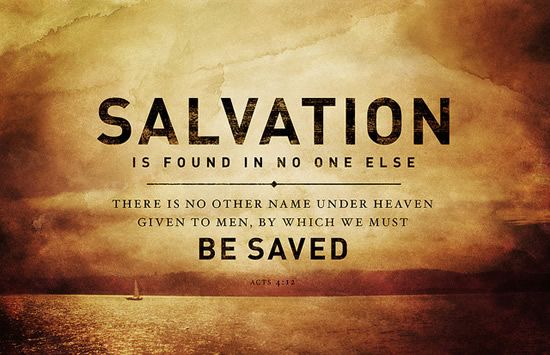The concept of “salvation” generally has different connotations in Judaism and Christianity. I was talking to a rabbi one day about the subject of being saved from the penalty of sin and receiving the salvation of God. This rabbi interjected that the Jewish concept of salvation is not focused on a spiritual salvation from sin as much as deliverance from the trials of life. As we studied this subject together I found a much broader understanding of the concept of salvation in the Bible. As we study this week’s Torah Portion we will see how the word salvation is used in the context of the Exodus and crossing the Red Sea.
Following God
When the sons of Israel left the land of Egypt, the LORD Himself went before them in a pillar of cloud by day and a pillar of fire by night (Ex. 13:21-22). God’s presence was with the people. God provided light and shade for the Israelites. God was leading the people and protecting them from the heat of the sun by day and the cold of the desert air by night. God was with them and they had nothing to fear.
Listening to the Voice of the LORD
The LORD then directed Moses to lead the sons of Israel on a not-so-logical journey. The quickest and most logical route of escape from Egypt would have been along the Mediterranean Sea but God had another plan. The LORD led the people to a location that had no outlet and it would seem like they were trapped. This strategy made no human sense, however, the LORD had a plan:
For Pharaoh will say of the sons of Israel, ‘They are wandering aimlessly in the land; the wilderness has shut them in.’ Thus I will harden Pharaoh’s heart, and he will chase after them; and I will be honored through Pharaoh and all his army, and the Egyptians will know that I am the LORD. And they did so. – Ex. 14:3-4
God had a plan to use the vulnerable position of the sons of Israel in order to draw Pharaoh and his army out to chase after them. The sons of Israel acted according to the word of the LORD.
Pharaoh and his army came in pursuit of the sons of Israel with their six hundred chariots (Ex. 14:7), just as the LORD told Moses they would. God was not surprised at the actions of the Egyptians. God knew it was going to happen this way and He had already determined their end. The sons of Israel, however, became extremely afraid and cried out to the LORD and to Moses:
Is it because there were no graves in Egypt that you have taken us away to die in the wilderness? Why have you dealt with us in this way, bringing us out of Egypt? Is this not the word that we spoke to you in Egypt, saying, ‘Leave us alone that we may serve the Egyptians’? For it would have been better for us to serve the Egyptians than to die in the wilderness. – Ex. 14:11-12
Pharaoh and his army were in close pursuit after the Israelites and the Israelites became anxious and feared for the worst. The Israelites then began to second guess their new freedom and longed for the days of “secure slavery” again.
The Cost of Following God
The situation of the sons of Israel with the Egyptians in close pursuit is a very accurate depiction of what many believers in Yeshua experience in life. A person’s new found spiritual freedom brings great joy and hope to life when one first believes on Yeshua. When a person begins to hear and listen to the voice of God it is like discovering a whole new world, however, when a person faces trials and persecutions in life, he or she begins to wonder if they have really chosen the right path.
Just as the LORD warned Moses and the children of Israel of the coming attack of Pharaoh (Ex. 14:3-4), even so Yeshua warned His disciples that persecutions would surely come upon all of those who chose to follow Him (John 15:18-21). Following God always has a cost.
Together with the cost of following God, there is also a choice to continually trust Him. Continually trusting God, especially in times of trials and persecution, is often the most challenging aspect of our faith:
Blessed is a man who perseveres under trial; for once he has been approved, he will receive the crown of life which the Lord has promised to those who love Him. – James 1:12
We all face various trials in life and only we can choose how to respond to these trials, especially as it relates to our faith in God.
Seeing the Salvation of God
Moses heard the cries of the people as a result of Pharaoh and his army but he was not anxious or concerned. Moses knew the plan of God and he encouraged the people with these words:
But Moses said to the people, “Do not fear! Stand by and see the salvation of the LORD which He will accomplish for you today; for the Egyptians whom you have seen today, you will never see them again forever. The LORD will fight for you while you keep silent.” – Ex. 14:13-14
Moses had complete faith in the God whom he knew. Moses knew what the LORD had spoken to him and Moses believed that God would do what He said He would do.
Yeshua = Salvation
Moses spoke into the fears of the people and gave them something to believe in. He told them “Do not fear! Stand by and see the salvation of the LORD…” The phrase “salvation of the LORD” in Hebrew is just two words: “ישועת יהוה” – “Yeshuat Adonai.” The word “yeshua” is the Hebrew word for “salvation.” This is the very same word as the name of the Messiah, “Yeshua,” which is translated as “Jesus” in English.

In the western, English-speaking world, it is common to hear Christians talk about receiving “salvation” and being “saved.” It is often viewed as a one time experience that occurred at some specific point in life. For example, when a Christian shares his or her testimony of faith, they might say that they were saved On January 1, 1998, and then continue with their story. It makes salvation a one time event that is history. In the Hebrew, however, there is definitely a deeper meaning of salvation that is evident in the Old Testament Scriptures.
Walking in God’s Salvation
The Hebrew word “yeshua” means salvation, deliverance, victory, etc… It often carries with it the meaning of aiding someone in need and providing deliverance from a difficult situation. In other words, it goes beyond the concept of a one time spiritual event to a continual dependence on the help of God and receiving His deliverance.
Although we acknowledge that God saved us from our sin when we believe in faith on His provision of Yeshua’s sacrifice (Rom. 10:9-10), we should never limit God’s salvation work in our life to that one point in time. As we continue to trust in Him and believe in Him, He continues to deliver us from the snares of this world. The salvation of the LORD is a walk of faith not simply a moment in time.
The writer of the Epistle to the Hebrews reminds us again and again to hold fast to our faith in Yeshua (Heb. 3:5-6). He even uses the example of the Israelites who came out of Egypt to remind us that it is not enough to simply join the “Exodus group,” but rather that there must be a continuing on in the faith in God (Heb. 3:12-19). We should always remember the “day of our enlightenment” (Heb. 10:32) and continually move forward by holding fast to our faith in the promises of God (Heb. 10:32-39).
Receiving the Salvation of God
When Moses invited the Israelites to “see the Salvation of the LORD,” he did not give the Israelites a list of things to do in order to see it. He only told them to stand there. Moses them told them “The LORD will fight for you while you keep silent” (Ex. 14:14). The LORD did not ask for the Israelites to help him or do anything but simply trust Him, remain silent, and receive His salvation.
The Hebrew word for “keep silent” in the above phrase is “תחרישון” – “tachrishon.” This word in context clearly means, “to say nothing, to keep silent, to cease, to hold one’s peace,” etc.. One of the hardest things for human beings to do is to keep silent. Our nature is to want to say or do something and if nothing else, to worry. There is a time to act and a time to speak but there is also a time to keep silent. Moses told the Israelites that they were to keep silent and that the LORD would fight for them. The salvation of the LORD was completely dependent on the LORD Himself.

Learning to Cease
Anyone who knows me personally knows that I enjoy the Sabbath. I wrote and published a book on the subject of the Sabbath five years ago and have been leading and teaching groups about the Sabbath throughout these past five years. The Hebrew word for the word “sabbath” is “שבת” – “shabbat” and comes from the verb “לשבות” – “lishbot” which means “to cease” or “to stop.” God created the heavens and earth and all that was in them in six days and then He ceased from His work of creating and rested on the seventh day (Gen. 2:1-2). In talking to people from all over the world about the Sabbath, I find that most people struggle to really stop from their daily activity one day a week and to truly cease from their labors and the busyness of life.
We all know this well-known verse from the Psalms:
“Cease striving and know that I am God; I will be exalted among the nations, I will be exalted in the earth.” – Ps. 46:10
I truly believe that part of walking in the “salvation of the LORD” is learning how to cease from our own efforts and letting God be God. This begins in each person’s life with a conviction of sin and an acceptance of Yeshua as God’s Messiah and atonement for our sin. It takes humility and a humbling of our souls to acknowledge that we can’t do it alone and that we need a Savior. Beyond our initial salvation from sin is a daily walk with God as our Savior and Deliverer. God desires to deliver us and He also desires to be exalted in and through our life. We need to learn to cease striving and trust in Him.
Experiencing the Salvation of God
God then instructed Moses to stretch his staff over the sea so that the waters would be divided. Moses did so and God caused a strong wind to divide the sea and dry the ground. The children of Israel then walked through the midst of the waters with a wall of water on their left and their right (Ex. 14:15-22), as they escaped from Pharaoh and his army. The Egyptians tried to follow the Israelites through the sea, however, the LORD had Moses stretch his hand over the sea again so that the waters returned to their normal state and destroyed Pharaoh’s army (Ex. 14:23-31).

Immediately after the great salvation which the LORD provided for the Israelites, Moses and the children of Israel sang a song of praise to God. The song begins with these words:
I will sing to the LORD, for He is highly exalted;
The horse and its rider He has hurled into the sea.
The LORD is my strength and song,
And He has become my salvation; – Ex. 15:1-2
The response from Moses and the sons of Israel was to sing and worship the LORD. They worshiped the LORD for what He had done and they recognized that He alone is their source of strength.
The LORD is My Salvation!
The last phrase in the quoted verses above read “And He has become my salvation” (Ex. 15:2). The Israelites didn’t just say that God saved them or that He provided salvation for them, but rather, “He has become my salvation.” The Hebrew literally reads “ויהי לי לישועה” – “vayehili liy’shuah” – “and he is to me salvation.” The LORD had literally become salvation for them. They experienced a salvation so life changing that they literally associated God with their salvation.
We see this personal salvation in the song as it continues as well:
This is my God, and I will praise Him;
My father’s God, and I will extol Him. – Ex. 15:2
We see in these last couple of phrases of Ex. 15:2 a personal attachment of the Israelites to God and a recognition of a connection to the faith of their ancestors; Abraham, Isaac, and Jacob. The LORD had saved them and He had become their God and their salvation.
Everyone who calls on the Name of the LORD will be saved (Romans 10:12-13). The gift of salvation may be marked by a certain point in time but it was never meant to remain there. The LORD is a personal God who desires to continually abide in us and deliver us from the trials of life. We need to learn to be still and embrace the salvation (Yeshua) of the LORD in our daily lives.


Thank you for this. I have gleaned some great insight. Selling our possessions and the journey to Jerusalem has brought us to rely on Yeshua Adonai as our source of salvation even more than I knew. It is continual and He is our protection now, even to the end of the age.
You’re welcome Aaron.
Thanks for sharing and may the Lord continue to direct your path as you trust in Him!
Daniel
Dear Daniel,
Great exhortation my brother! Often missed is the continual work of salvation in Christ! He is bringing us from the cross to His glory!!! The culmination of all things found in Him!!! The first and the last, the beginning and the end! He is perfecting the saints, working out our salvation through the proving of our faith! A very lost teaching and detrimental to our spiritual growth! Glory to God for the work He is doing in and through you!
Blessings from the States!
Jason
Thank you for your comments Jason!
It is good to hear feedback from readers.
Blessings,
Daniel
Hi Daniel!
The whole context of this Article shows exactly the “chapter life” where I am walking since two years ago. God surely loves to share His power as our Deliverer ONLY if we trust Him with all of our being… that means obedient faith, loosing ourselves without reserve in His hands.
I loved to be part of this strange but “saved career…”
Thank you for the encouragement.
Shabbat Shalom!
Dear Yazmin,
Thank you for sharing about where you are at in life.
Be strong and keep the faith! God is faithful!
Daniel